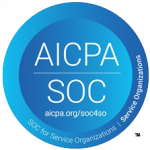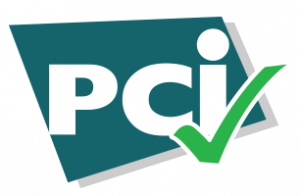
Your healthcare organization is in the business of providing care. As the industry shifts toward a value-based payment model, it is becoming increasingly difficult to balance a healthy bottom line with changing technologies and patient expectations. There is not a shortage of resources on how to improve your healthcare revenue cycle (including on the Revco Solutions Resource Library!), but there is far less information out there about what “healthcare revenue cycle management” means, exactly.
The Healthcare Business Management Association (HBMA) defines revenue cycle management as:
“The administration of financial transactions that result from the medical encounters between a patient and a provider, facility, and/or supplier. These transactions include, without limitation, billing, collectors, payer contracting, provider enrollment, coding, data analytics, management, and compliance.”
Healthcare revenue cycle management is so much more than just billing and patient collections. It is a process that starts as soon as a patient makes an appointment with your hospital. Let’s break down a few of the most critical stages of the cycle and how they impact the overall health of your hospital’s bottom line.
Pre-Registration
Believe it or not, the key to optimizing your revenue cycle starts before the patient ever walks through your doors. Before they arrive, your team should gather a detailed medical history as well as insurance coverage information. Insurance eligibility should also be established prior to the patient’s visit, so your registration staff knows whether they need to discuss patient responsibility or a payment arrangement prior to the patient receiving services.
Registration or Time-of-Service
It may seem counterintuitive to discuss payment for services before they are rendered, but as out-of-pocket expenses continue to rise, setting financial expectations early is actually a requirement for a high-quality patient experience. No one likes to be surprised by a bill – especially by a debt that is typically not one of choice – and helping your patients maintain their physical and financial health will go a long way in establishing trust and a lasting relationship.
The time of service is also the perfect time to verify all those important pre-registration details to ensure your billing process goes smoothly, as well as to collect any copays in full. The probability of collecting a copay for a visit decreases by more than 50% as soon as the patient leaves the office, so training your intake staff to collect during registration is key.
Early Out Self-Pay Follow Up
The definition of “self-pay patients” has changed dramatically in recent years. With skyrocketing deductibles, even insured patients often need to be treated as if they aren’t. That is why it’s extremely important for the financial health of your hospital or healthcare organization to have an early self-pay follow-up program in place.
You should begin following up with patients about their financial responsibility immediately upon a determination from their insurance company. The cost of collections only increases over time – meaning the longer you wait to follow-up, the less likely you are to receive payment in full.
Insurance Denial Management
Insurance denials have been steadily increasing, with payers denying nearly 20% of in-network claims on the ACA Marketplace – and that was before the start of the COVID-19 pandemic. Providers that have not developed an aggressive denials management process only recover about 30-40% of their denied claims. Even if your denials and subsequent write-offs represent a small percentage of overall revenue, they should not be overlooked. The small claims can add up to significant losses over time.
Healthcare Debt Collections
No matter how well developed your early revenue cycle management processes are, it is inevitable that some of your patient balances will age to the point of bad debt. Collecting money from patients isn’t easy. With the proper training and collection call techniques, it is possible to recover on those overdue accounts, but more health systems are turning to vendor partners for assistance. However, not all partners are created equal. Make sure you are asking the right questions of your vendors before entrusting your patient experience, and your reputation, to them.
The goal for your hospital should be to develop a revenue cycle that recovers payment in full as quickly as possible. Best performers thrive by perfecting their early-stage processes, and by relying on vendor partners who can assist every step of the way. If you’d like to speak to someone about the health of your healthcare revenue cycle, contact an expert at Revco Solutions today!






